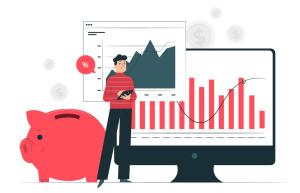In today’s economic landscape, energy bills have become a significant concern for many households, especially for renters and those on fixed incomes. With the recent fluctuations in energy prices and the rising cost of living, many individuals and families find themselves struggling to keep up with their utility payments. If you’re facing challenges with affording your energy bills, here are some practical steps you can take to manage your situation effectively:
- Assess Your Direct Debit: Start by reviewing your monthly direct debit payments with your energy supplier. If the amount seems too high based on your actual energy usage, consider requesting a flexible monthly direct debit plan where you pay for your actual consumption. This approach can help ensure that you’re not overpaying for your energy and ease the burden on your finances.
- Pay What You Can: If you’re unable to meet your direct debit payments in full, don’t hesitate to reach out to your energy supplier. Request an “able to pay plan” that aligns with your current financial situation. Even if you can only afford to make partial payments, doing so regularly can prevent your arrears from escalating rapidly and demonstrate your commitment to addressing the issue.
- Explore Financial Assistance: Check if you’re eligible for any financial assistance programs or benefits that could help alleviate the pressure of your energy bills. Organizations like MoneyHelper, Entitledto, and Turn2us offer benefits calculators to help you identify potential support options. Additionally, inquire about hardship grants offered by energy suppliers and charities, which can provide temporary relief during difficult times.
- Government Support: Stay informed about government support initiatives designed to assist households with energy costs. Ensure that you’re receiving any relevant benefits or payments for which you qualify. Programs like the Fuel Direct scheme enable individuals to repay their energy debt directly from their benefits, easing the financial strain on vulnerable households.
- Optimize Your Heating System: Take proactive measures to reduce your energy consumption and lower your bills. If you have a combi boiler, consider adjusting the heating flow temperature to a more efficient setting. Additionally, disable the hot water pre-heat feature if it’s unnecessary, as this can help conserve energy and reduce your overall usage.
By taking these proactive steps, you can better manage your energy bills and navigate financial challenges effectively. Remember that communication with your energy supplier is key, and don’t hesitate to seek assistance or explore support options available to you. With careful planning and resourcefulness, you can mitigate the impact of rising energy costs on your household budget.






